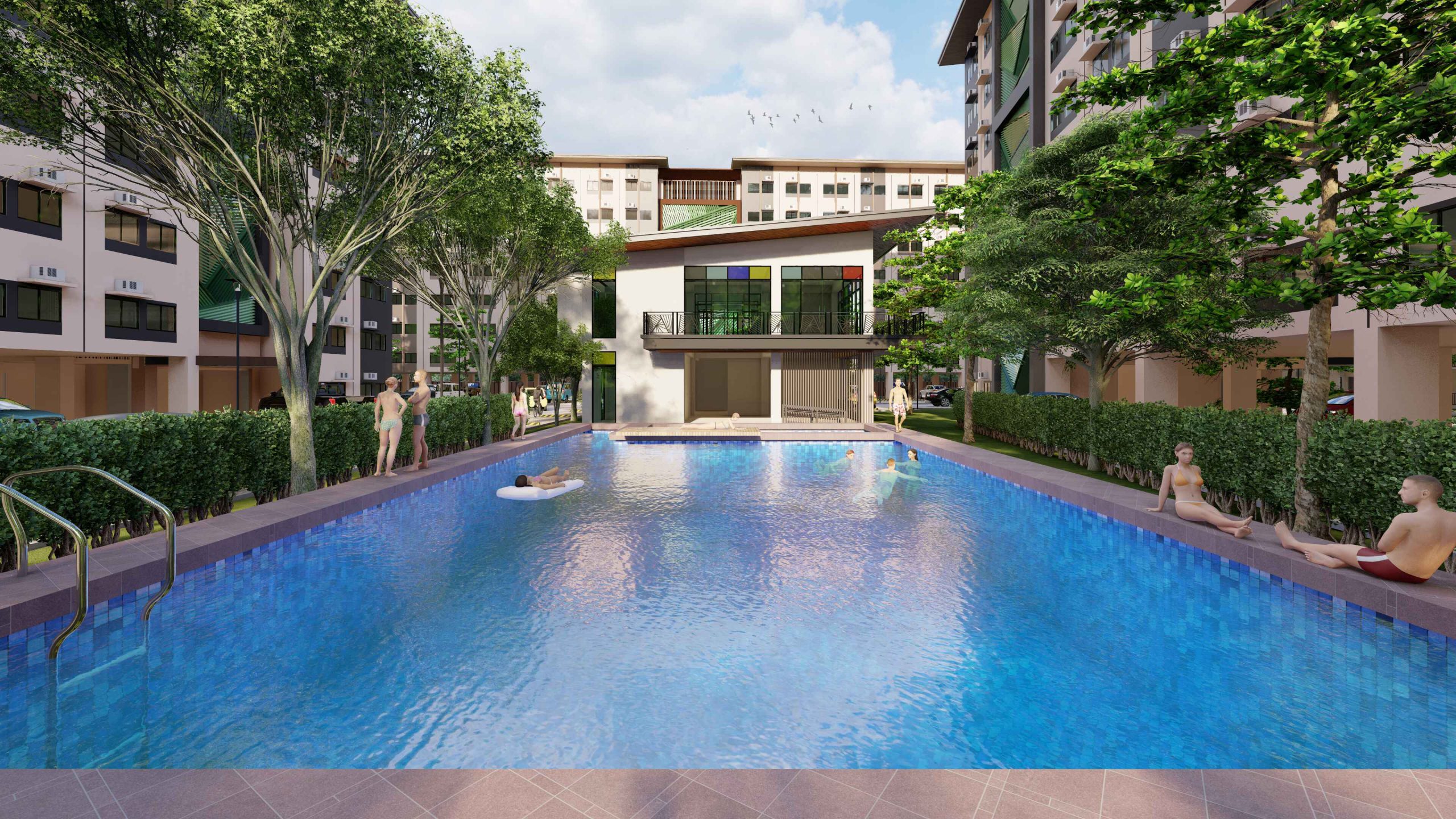Many individuals, especially working millennials and young professionals, desire to live in a condo, particularly at emerging locations in Greater Manila Area (GMA) and regional areas nationwide. This is because of the modern and metropolitan lifestyle that compact living in the midst of a growing cityscape provides.
But fast forward to present, condominium living is becoming more and more popular beyond the young generation. Even those who belong to Generation X and Baby Boomers find condominium ownership to be convenient and a practical investment.
If your curiosity is sparked or you’ve been thinking of buying a condo soon, this article will give you the list of things you should know about condominium units and owning one for yourself or your small family.
Types of Condo Ownership
The first thing you should know about vertical homes is its ownership types. In the Philippines, there are two categories of condominium ownership: leasehold ownership and freehold ownership.
Leasehold Ownership
The first type of ownership is leasehold. This is a sort of restricted possession agreement that lasts around 50 years, after which you have the option of renewing the lease for another 25 years or returning the property to the developer/landowner, you are acquiring the right to live in the condo unit for a specific amount of time. It’s the equivalent of prepaying 50 years of rent.
This sort of condo ownership may make strategic sense for you. Simply read the leasehold limitations to understand who is responsible for maintenance and repairs, as well as what is included in the monthly payments, and the important is you know the rights of a condo unit owner in the Philippines.
Depending on your requirements and goals, Leasehold has benefits. If you’re an investor looking to generate money by renting out many apartments, Leasehold can be a viable alternative for you.
Freehold Ownership
Is wherein the unit is permanently yours as the owner. Your children or other legal heirs will become the owner after your death, but you are allowed to inhabit it for as long as you choose.
The Condominium Certificate of Title attests to a condominium’s freehold ownership (short for CCT).
It is proof that you are the condo unit’s owner. It includes details such as the address of the unit, its floor number and unit number, its size, and its owner.
The Register of Deeds in the province or city where the property is located maintains a record of the CCT.
Once your condo unit has been paid in full, you will receive your CCT. The title will be used as security by the bank if you take out a loan to pay for it.
Leasehold vs. Freehold Ownership
Legal words that characterize the form of ownership of a property by the individual owner include leasehold ownership and freehold ownership.
In leasehold ownership, the apartment or condo unit on the property is leased to the condo owner for a certain tenor (lease time), while the original owner/freeholder retains ownership of the land. In most circumstances, the lease tenor is 99 years or longer.
The term “freehold” denotes ownership of both the building and the surrounding land. Compared to leasehold ownership, freehold ownership offers more certainty about ownership, more freedom when selling the property, and easier access to mortgage financing. If money is tight, leasehold ownership makes sense; otherwise, freehold ownership is always preferable.
3 Things to consider when buying a Condo
Purchasing a house should be an exciting journey full of memories. It will be a significant choice. There are several options available when opting to purchase a property. A condominium is one option.
1. Is it the right property type for you?
A condominium unit is similar to an apartment in that you own your unit and shared amenities with other owners. Before purchasing a condo, examine whether this is the type of house you require. Are you prepared financially? Buying a condo without planning, like with anything else, might appear oppressive and unclear.
2. What are my rights as a condo owner?
Before purchasing a condo you need to know first the rights of condo units owner in the Philippines, there are a number of steps to be taken: how will you finance a condo and are you financially stable; your wish list; should you buy new or used; whom should you consult; becoming familiar with the condominium corporation and condominium; making an offer and closing an agreement; and moving in.
3. What is the quality of the condo you’re looking for?
Knowing what you’ll need in your compact spaces is crucial since the condo building you pick will undoubtedly affect you and your lifestyle for years to come. Make a list of the things you’ll need and the ones you like.
What do you absolutely need and what do you not want? Exists an ideal location? How large should your condo unit be? You should think about whether this will work with all of your future goals.
10 Questions to ask yourself before buying or renting a condo
Need a quick but reliable guide before buying or renting out a condo? Here are just some questions you can ask yourself so as to make a more informed condo purchase decision.
1. Is your workplace nearby?
You spend a lot of time at work each week, so there is no reason for you to waste time driving there from your condominium building. For it to be convenient for you, you need to know if your starter home is close by.
2. Is public transportation available?
One of the best features of a condominium is its ease of access to other sections of the city, both in terms of the adjacent highways and train stations as well as the diversity of public transportation options accessible in the neighborhood. Therefore, the ideal condominiums to rent are those that are close to transportation hubs such as MRT stations, LRT stations, bus stops, or roads where jeepneys go.
3. Are there close medical facilities and emergency services?
You need to be able to go from your condominium to a hospital or healthcare center swiftly if you’re unwell or have a medical emergency. When shopping for a property, safety is a crucial consideration.
Much though the condo complex itself is expertly constructed and secure, it is even safer if it is nearby enough for the police and fire department to simply access it in the event of an emergency.
4. What’s the state of the unit generally?
Many of the condominiums for rent in Metro Manila are brand-new as a result of the recent real estate boom, while others may already have been occupied (and hence, slightly used). Check the property out if the latter is the case. A first home that requires significant repairs or has ongoing issues might not be the greatest investment for the price you’re being asked to pay.
5. Is it furnished or not?
Rent and selling price for fully furnished condo units is often a little bit more than for bare ones. In the Philippines, completely furnished apartments come with everything you need, including a bed, sofa, fridge, stove, microwave oven, washing machine, dining table and chairs, TV, and sometimes even an Internet connection, working phones, and a cable subscription that has already been placed.
On the other side, semi-furnished apartments could just come with the essentials, such as a bed, fridge, stove, and, if you’re lucky, a TV and a washing machine. Choosing a semi-furnished apartment makes more sense if you’re not the sort to cook at your personal sanctuary or binge-watching TV.
6. Do you understand every rule?
As a condo owner, to make sure you are receiving the right condominium for you, it is vital to know everything before signing the rental agreement, from if dogs are allowed to whether there are specific hours for guests.
You must read your rental contract carefully before signing anything, no matter how insignificant it may appear to you. Renting a condominium is a commitment, and you risk losing money if you agree to conditions that you later find to be unfavorable.
7. What kind of people live nearby?
Since there is only a wall between the apartments, condominiums are especially sensitive to noise. It is best to find out from the unit owner or the rental agency whether the other condominium unit owner are amenable to noise and whether you enjoy having visitors over. Knowing whether your neighbor enjoys hosting parties or bringing guests over is preferable if you are the one who is sensitive to noise.
8. How is the management of the property?
The property management of the condominium must be on top of the necessary services every tenant needs, from garbage disposal and electrical maintenance to lock changes and air conditioning unit cleaning. After all, they are being compensated for doing so.
Property management must not be doing a very good job if it takes two weeks for them to reply to a request to replace a broken shower or blocked toilet, in which case the services are not worth the condo fees you are paying.
9. What amenities are offered?
It is vital to know whether the condo facilities give the best value for money or whether you should choose a unit with simpler features as a practical solution of being on a certain budget.
But if you’re into practical living with comfortable amenities and facilities that you 100-percent deserve, condominium developers like Asterra features round-the-clock security with surveillance cameras, an exercise facility, sports court, clubhouse, tranquil landscapes, and pool area for its condominium units.
10. Is the location well-secured?
When renting or fully owning a condominium unit, security is virtually a deal breaker for you, especially if you’re considering condominium projects that are up-to-date and well-known.
Besides security, you might want to look into the location’s proximity to a variety of vital establishments and institutions. Basically areas posed for growth. This includes educational institutions, healthcare facilities, retail stores, shopping centers, tourist spots, local government offices, and more.
If you’re eyeing condo living in the city, it doesn’t have to be in an overcrowded and polluted neighborhood. You can definitely gain condo residence in a community where there are open greens or eco-friendly spaces to balance out the bustling metro lifestyle with the soothing tranquility of provincial way of life.
Rights of Condo Owners in the Philippines
On June 18, 1966, the Condominium Act, also known as Republic Act No. 4726 (RA 4726), was enacted, allowing people to co-own land in addition to having full ownership of their unit. This legislation also outlines the extent of their authority over the acquired unit.
In order to prevent developers or sellers from taking advantage of them or deceiving them about their units, the rights of buyers are clearly defined.
The master deed may specify that the property must be presented and made available to other unit owners before being made available to other interested buyers. Condominium owner exclusive rights, such as finishing or decorating his own unit, selling or disposing of his/her unit, and common area regulations are also included.
An enabling deed known as a condo’s master deed is one that must be registered in the Register of Deeds and noted in the title of the property. It must include the following information: a description of the land; a description of the building; and a description of the common spaces.
As long as they do not own the property on which the apartments are built, foreign nationals may likewise buy apartments.
Condominiums… Are They a Good Investment?
A condominium and its thoughtfully designed spaces could absolutely be a good investment for you as long as you figure out it is what you want and need.
Many individuals, including overseas Filipinos, invest in value-priced condominiums because they want to see their money rise in value over time. Condominiums are one of the finest investments if you want to make a lot of money. After all, they provide a consistent return on investment as property values rise over time. As long as you know the rights of condominium unit owners in the Philippines.
For your condo property investment concerns and inquiries, speak to an available Asterra representative today!





